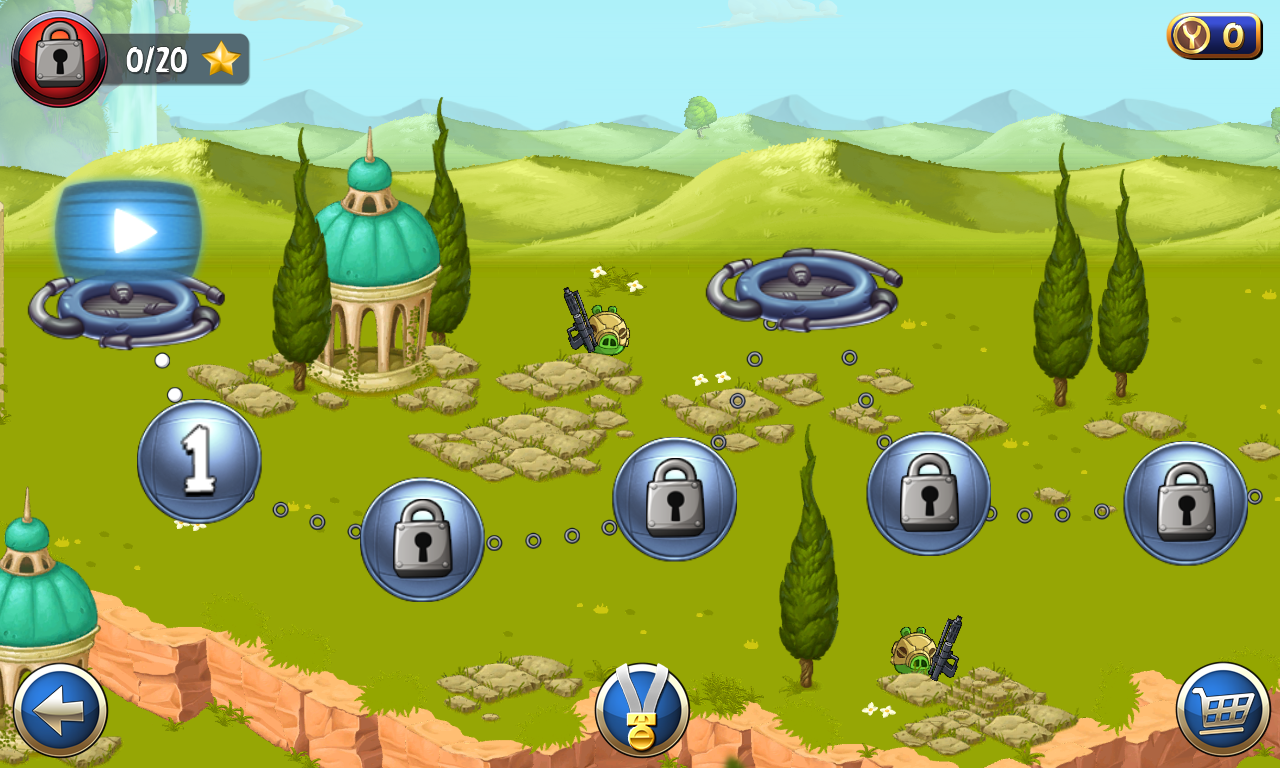
Windows Phone is the least usable mobile OS in the world
The release of iOS 7 seems like as good a time as any to reassess the mobile operating system market, and this is precisely the thinking of Pfeiffer Consulting. The firm pitted Android, Blackberry 10, iOS 7, iOS 6 and Windows Phone 8 head to head (to head to head to head), comparing the aspects of the OS that have direct impact on user experience. Rated in four key areas, Windows Phone 8 came bottom of the list in terms of overall usability.
The results are quite damning. Looking at what the report terms "cognitive load" (how easy it is to pick up the OS), Windows Phone 8 actually fared well, receiving the same rating as iOS 7 and being praised for its "streamlined user interface". However the OS is criticized for reducing the overall user experience and efficiency.

How to find, lock, ring and wipe your Windows Phone remotely
Windows Phone receives quite a bit of bad press for its immature feature set and lack of killer apps. The smartphone operating system, however, has a few neat tricks up its sleeve which some users may not even know about. The one feature that I find to be quite useful yet highly understated is the ability to find, lock, ring and wipe Windows Phones, officially known as "find my phone", which comes in handy in case of theft or misplacing the handset.
The feature is available, and probably operational too, out-of-the-box. You only need a couple of minutes to spare, a Windows Phone and access to a computer, smartphone or tablet, to set it up properly and find, lock, ring or wipe your handset remotely.

The most popular stories on BetaNews this past week -- September 15-21
Apple stole the limelight from just about everyone else this week. The big news was, of course, the release of the iPhone 5c and iPhone 5s. Just about as soon as online orders opened up, delays in shipping started to lengthen; Joe was somewhat skeptical about the limited supplies.
Before the new hardware hit the stores, iOS 7 was released to mixed reviews -- I hated it, Wayne loved it. A couple of security holes were found in the operating system including one that allowed for Siri to be used to post messages and access phone details even on locked handsets. There was also a new iOS 7 inspired look for iCloud and the addition of a bookmark syncing option.

My Windows Phone makes me WANT an iPhone 5s
Sometime around this day, last year, I wrote an opinion piece that resonated with many of you. It's called "I want nothing to do with iPhone 5". So you may be wondering why I am not writing the same story as I did in 2012, but this time around with a "5s" replacing the "5", from top to bottom. The reason for my apparent insanity is quite simple.
Since writing that piece I've used Android and, most recently, Windows Phone 8 as my daily platform (yes, I'm calling it like that). The user experience has been, to describe it in one word, insightful. Insightful as to how good or bad Android and Windows Phone 8 are compared to anything that Apple released before iOS 7 and insightful as to how one can use different-sized smartphones with different feature sets and different quality standards.

Microsoft kills Skype (and consumer trust) for Windows Phone 7
When a consumer decides to buy into a platform or operating system, they expect commitment from the developer. For instance, Apple released iOS 7 on Wednesday and included support for the iPhone 4 which was released in 2010. An iPhone buyer can reasonably expect a healthy dose of updates for years. As a result, Apple users trust and buy into iOS.
Conversely, Microsoft announces that it is ending Skype development and support for Windows Phone 7. Yes, Microsoft will continue to support the smartphone operating system until September 9, 2014. However, ending support for one of its own apps is a slap in the face to the loyal users who chose to buy into the platform.

Angry Birds Star Wars 2 lands early on Windows Phone 8
Those waiting to do battle with the pork side in the next version of Rovio's popular Angry Birds series of games got a surprise treat today when, without announcement, the much anticipated Star Wars II appeared in the Windows Phone Store.
The Finnish game maker has been building momentum and anticipation towards a big launch tomorrow, which was expected to be cross-platform. But, for once, it was customers of the Windows mobile platform that received the bonus often reserved for Android and iOS users.

Windows Phone 8 is one step closer to enterprise and government adoption
Microsoft can pop the champagne. The software giant has scored a major win in its uphill battle for Windows Phone 8 enterprise and government adoption -- its smartphone operating system is officially FIPS 140-2 certified. The accreditation was given by a joint effort between the US National Institute of Standards and Technology and the Communications Security Establishment Canada, called Cryptographic Module Validation Program.
The FIPS 140-2 accreditation, which was received earlier this month according to official documents, makes it possible for Windows Phone 8 users to handle sensitive information on their devices, when working in regulated industries -- financial and health-care institutions and for the Canadian and US governments, for instance.

Microsoft, end the stupid roll outs, just release stuff!
If there's one thing that I wholeheartedly dislike about the tech world it's being told about a brand new product that really appeals, and then having to wait ages for it. It's like that someone who told me about it wants to toy with me, psychologically torture me and, when I couldn't care less about that new and shiny thing, give it to me. Of course, I'm now blowing things out of proportion, but I want you to understand, at some level, how it feels when I'm entrusting part of my tech life to Microsoft.
For some incomprehensible reason, in 2013 Microsoft is still using the expression "rolling out". It defines a vague date of availability for any new changes that it announces. How outdated is that? You may think that Microsoft's roll outs have a specific role, of insuring extra stability and providing a seamless transition, to the new version for its users. But that is, in my opinion, such a pathetic excuse that only a two-year old who is baited with candy by his parents might be inclined to believe.

Microsoft admits its pulled anti-iPhone ads were 'off the mark'
On Friday, Microsoft uploaded a series of seven videos to its Windows Phone channel on YouTube. The videos, headed "A fly on the wall in Cupertino" poked fun at the new iPhone 5s and iPhone 5c’s features and were, depending on your point of view, hilarious, genius, spot-on, unfunny, pathetic, and wide of the mark.
My colleague Alan Buckingham watched them all and then started to write a story, adding all the videos for your viewing (dis)pleasure. Unfortunately, before he got to post it, Microsoft switched all the clips to private in yet another of its now frequent U-turns.

The most popular stories on BetaNews this past week -- September 8-14
Big news came from Apple and Microsoft this week. Microsoft seemingly had a change of heart; having previously said that Windows 8.1 RTM would not be made available before its official launch date, the company announced that it would be released to people with TechNet and MSDN subscriptions.
The same group of people also gained access to the pre-release version of Skype. Microsoft was clearly in a very giving mood this week as the company also announced that it was giving free copies of Office 365 to non-profit organizations.

Happily living with two mobile operating systems
I have vague memories of Windows Mobile from some previous life...it's like a nightmare that I can't escape, though I am pretty sure it was a dream in that dark, distant era. Fast-forward to today and I have found myself torn between two mobile operating systems and thankfully neither is that early CE-based mess that Microsoft pushed on customers and businesses lapped up -- when they were not swayed by BlackBerry.
Since those heady days I have settled down to Android, as many of my colleagues here use. However, I cannot help but stray my eye to other possibilities and Windows Phone 8 intrigued me enough to take a shot. The hardware and software (I'm using the Nokia Lumia 928) grabbed me, but the lack of apps did not. Still, it proved smooth and usable. My Galaxy Nexus was set aside, becoming a glorified MP3 player because I cannot live without Google Music All Access or Beyond Pod.

According to Google, your Windows Phone is a feature phone
Google is renowned for its lack of Windows Phone support. The search giant has only released one app for the tiled smartphone operating system, and that is basically just a portal to the mobile Google Search page. Windows Phone users get none of the popular apps launched on Android or iOS -- YouTube, Gmail, Google Drive or Google Now. That doesn't look like it will change in the near future, unless Windows Phone's market share is significant enough for the company to notice (which is a far-fetched scenario anyway).
Sadly, Google also shows its lack of Windows Phone support at browser level. Those who wish to access the Gmail website from a handset running the tiled OS are greeted with a plain ugly interface, while Android, iOS and even BlackBerry users get treated to the latest smartphone-optimized design. As a Windows Phone user I had hoped that this would change, but it looks like Google has other plans in mind, as, surprisingly, it considers the tiled smartphone OS to be of the feature phone kind.

9 reasons why Windows Phone 8 leaves me cold
Just like Brian (despite his niggles), Android is my mobile operating system of choice. I was once a diehard iOS user -- my old iPhone 3GS is still one of my favorite phones of all time -- but I've also been known to experiment with other mobile platforms.
Back in the days before smartphones, I had handsets from Nokia, Sony, Samsung, LG and numerous others that have been lost in the mists of time. My first smartphone was a rebranded HTC handset going under the guise of an Orange SPV M3100. It ran Windows Mobile, had a slideout keyboard and was amazing.

Microsoft to buy Nokia's phone business for just €3.79B
That's not a bad deal -- far from it, in fact. Nokia is leading the pack on Windows Phone sales, has a broad patent portfolio and a former Microsoft executive -- Stephen Elop -- as CEO. The software giant is buying the Finnish company's Devices & Services business -- its phone arm -- and the right to use its patents for just €5.44 billion. Yes, that's right -- just €5.44 billion.
That is considerably less than what Microsoft paid for Skype -- $8.5 billion -- in 2010. Both deals involve trading cash, but whereas the latter has yet to bear fruit across all of Microsoft's services, the former is actually at the forefront of turning Windows Phone -- the software giant's smartphone operating system -- into a solid mobile proposition and competitor to Android and iOS. Not a bad deal.

Windows Phone is a 'real adversary' to Android and iOS
Or is it? It's not often that I see Windows Phone linked to being a "key player" on the smartphone market (quite the contrary, if some pundits are to be believed). But, according to a new report from Kantar Worldpanel Comtech, it appears that Microsoft's operating system has established itself as a "real adversary" to Android and iOS. That appears to be no small feat.
Between May and July 2013, Windows Phones accounted for 8.2 percent of all smartphone sales in five major European markets -- France, Germany, Italy, Spain and UK. Compared to the same time-frame from last year (when it had 4.9 percent market share), the OS grew by 3.3 percentage points, or 67.34 percent. That is a sizeable increase, however one that did not lead to Windows Phone's market share hitting double digits in a larger region (which, in my opinion, is a noteworthy steppingstone for any podium contender).
